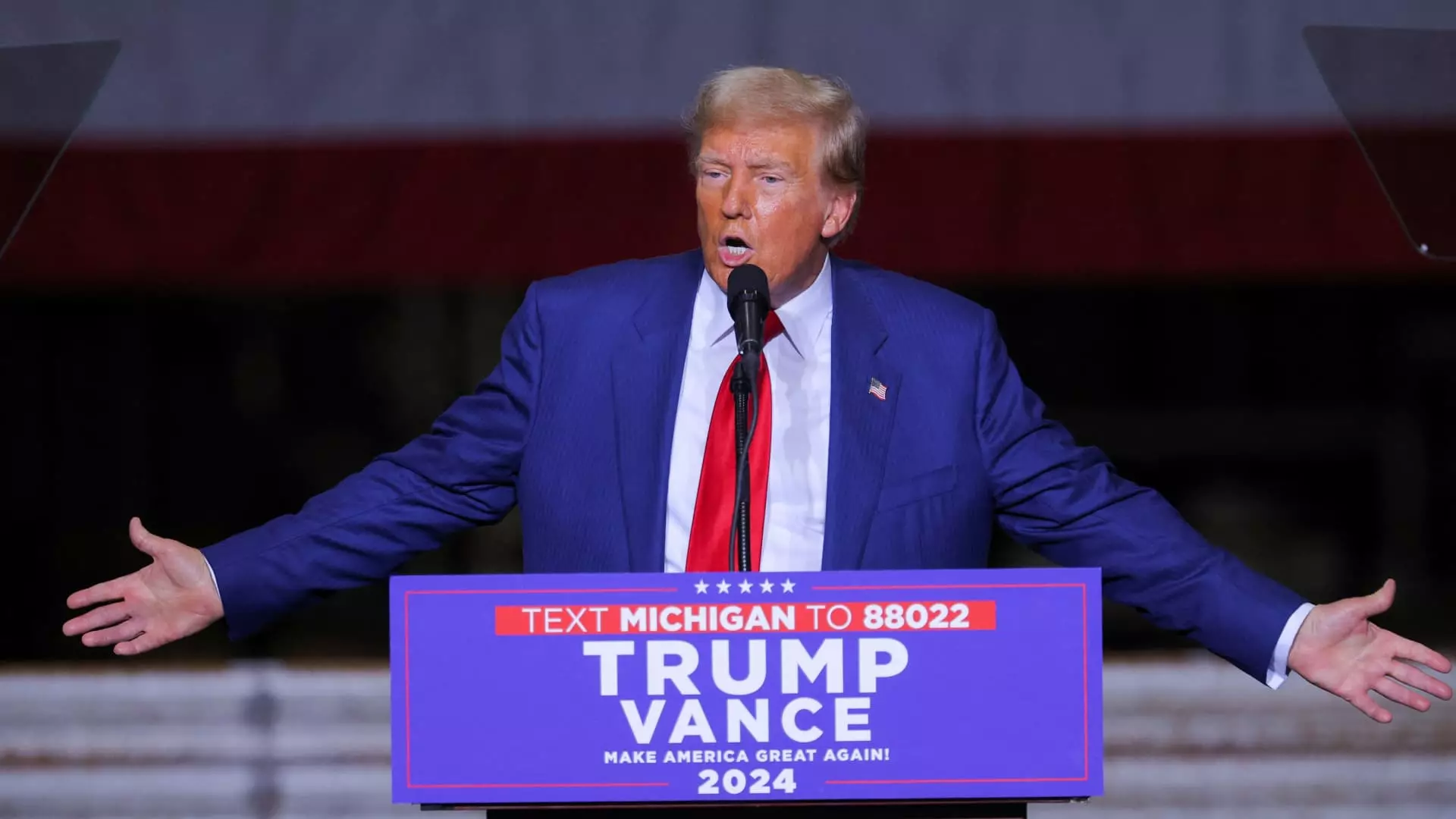In the dynamic landscape of American politics, particularly within the Republican Party, the relationship between local candidates and party leaders has transformed significantly, especially since the Trump administration. This change is acutely observed in Virginia’s seventh congressional district where the Republican nominee, Derrick Anderson, finds himself in a race that demands an intricate balance between loyalty to Trump’s policies and the economic realities of his constituents. As Trump’s influence looms large, candidates in battleground districts are reevaluating their positions in an attempt to secure support while also protecting local interests.
The Dilemma of Federal Employment
Anderson’s district boasts a substantial federal workforce, comprising approximately 60,000 employees, representing around 15% of the population. This demographic is not merely a statistic; it is a critical component of the area’s economic stability. Consequently, Anderson’s attempt to distance himself from Trump’s agenda—specifically the plan to relocate 100,000 federal employees and eliminate career civil servants—highlights the perilous balance he must maintain. The implications of Trump’s proposed policies extend beyond individual job loss, potentially decimating the local economy, given that for every federal job, an additional 0.6 jobs are indirectly created within the community.
In response to these challenges, Anderson has communicated a commitment to oppose legislation that might jeopardize national security or compromise the livelihoods of his constituents. His campaign rhetoric emphasizes protecting local jobs against the backdrop of his party’s prevailing themes of reducing governmental footprint. Anderson’s delicate navigation reflects a broader trend among Republican candidates in competitive districts; they must cultivate an image of alignment with Trump while simultaneously showcasing their independence to appeal to a diverse electorate, many of whom may not subscribe to the former president’s more draconian policies.
Anderson’s opponent, Democrat Eugene Vindman, presents a formidable challenge. Not only does Vindman benefit from a strong financial backing—having raised $7.5 million compared to Anderson’s mere $1.4 million—but he also has personal stakes in the ramifications of Trump’s policies. As the twin brother of Alex Vindman, who became a household name during the impeachment hearings against Trump, Eugene is positioned to leverage a narrative that resonates with voters who may fear the impacts of abrupt changes to federal employment.
Furthermore, Vindman is adeptly appealing to voters by addressing the concerns of government employees directly, exemplified by a recent canvassing effort wherein he engaged with constituents about the possible fallout from proposed federal workforce relocations. The ability to directly connect with local voters regarding their fears accentuates Anderson’s vulnerability in the race.
The Economic Ripple Effect
Experts have pointed out that the proposed policy changes could trigger widespread economic repercussions, estimating losses in the Virginia economy to range between $27-28 billion annually. This anticipated decline poses a direct threat not only to federal employees but also to ancillary businesses reliant on federal contracts and services. Eminent scholars like Terry Clower of George Mason University underscore that the loss of these jobs could equate to a staggering 160,000 job losses when accounting for indirect employment effects.
Such statistics are alarming and could sway undecided voters. If the electorate perceives Anderson as too aligned with Trump’s often binary banter about government downsizing, he may risk alienating constituents who prioritize economic health over partisan loyalty.
The Future of Virginia’s Political Landscape
As the election date approaches, the ramifications of Trump’s legacy loom larger than ever in Virginia’s seventh district. Candidates like Anderson are likely to continue maneuvering through a labyrinth of party expectations and local realities, striving to attract a base that encompasses both Trump loyalists and more moderate constituents. This strategic recalibration signifies that while Trump’s influence remains a powerful force, local economic interests are prompting a more nuanced discourse within the Republican Party.
Indeed, the outcome of this race may serve as a microcosm of the wider Republican strategy leading into the next election cycle, showcasing the complex interplay between national ideology and localized voter concerns. As political landscapes continue to transform, the ability of candidates like Anderson to navigate these tumultuous waters will ultimately determine their electoral fates and potentially, the broader trajectory of the party in similar districts nationwide.


Leave a Reply